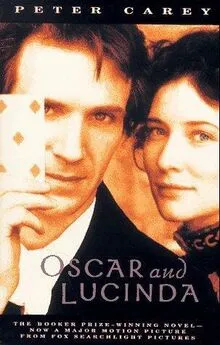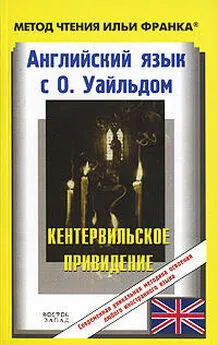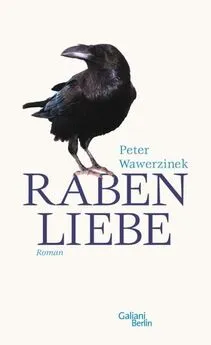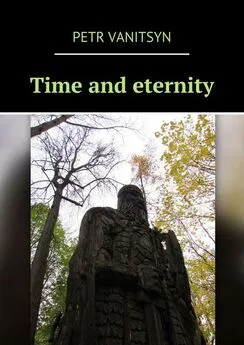Peter Carey - Oscar and Lucinda
- Название:Oscar and Lucinda
- Автор:
- Жанр:
- Издательство:Vintage Books
- Год:1988
- Город:New York
- ISBN:0-679-77750-4
- Рейтинг:
- Избранное:Добавить в избранное
-
Отзывы:
-
Ваша оценка:
Peter Carey - Oscar and Lucinda краткое содержание
The Booker Prize-winning novel-now a major motion picture from Fox Searchlight Pictures.
This sweeping, irrepressibly inventive novel, is a romance, but a romance of the sort that could only take place in nineteenth-century Australia. For only on that sprawling continent-a haven for misfits of both the animal and human kingdoms-could a nervous Anglican minister who gambles on the instructions of the Divine become allied with a teenaged heiress who buys a glassworks to help liberate her sex. And only the prodigious imagination of Peter Carey could implicate Oscar and Lucinda in a narrative of love and commerce, religion and colonialism, that culminates in a half-mad expedition to transport a glass church across the Outback.
Oscar and Lucinda - читать онлайн бесплатно полную версию (весь текст целиком)
Интервал:
Закладка:
The vicar of Woollahra then took her shopping and Society, always feeling shopping to be a most intimate activity, was pleased to feel the steam pressure rising in itself as it got ready to be properly
144
Not in Love
scandalized-its pipes groaned and stretched, you could hear the noises in its walls and cellars. They imagined he had paid for her finery. When they learned this was not so, that the girl had sovereigns in her purse-enough, it was reported, to buy the priest a pair of onyx cufflinks-the pressure did not fall, but stayed constant, so that while it did not reach the stage where the outrage was hissing out through the open valves, it maintained a good rumble, a lower note which sounded like a growl in the throat of a smallish dog.
Society-if you call it that, Lucinda would not-did not know what to do. It could not tolerate to see the two of them together, and yet it was in some way tickled. It squirmed and grimaced and hooted with derision to see him move with such a confident and manly stride, as if nothing were wrong. It could not have been funnier if he had walked beside a billy-goat and called it sweetheart. And as for "her"-she swung her arms. Indeed she did. Like a toy soldier. This might not have been so irritating if she had not walked beside "dear, good Dennis Hasset." Let her walk like this beside Jimmy d'Abbs or Harvey Fig or the Italian atheist. Let her drink wine and dance with them, and jolly good luck to her, in this life at least. But let her not walk in the places where Miss Barley Wilkes or Miss Harriet Crowley might more rightfully, and virtuously, tread. They watched the handsome vicar of Woollahra like a sleepwalker on a window ledge. He went with her to Jimmy d'Abbs's office to discuss the purchase of a glassworks. Even then he did not get it. He emerged as innocent as he went in. His friends tried to speak to him but he would not hear them. On this account he broke off relations with his friend Tom Wilson, the professor of classics at the university, the man he liked to call "the only educated man in Sydney." This happened on the very day the glassworks were finally purchased and when, in theory anyway, his association with Miss Leplastrier should end.
His "friend" Wilson had turned out as small-minded as the rest. He had claimed Miss Leplastrier stayed up all night gambling with "types" like Harvey Fig. This made Dennis Hasset's hands into tense claws and he cried out: "Agggh." He had reached a state which he could call "unhappy." He wrote the word on a piece of paper, then tore it up and threw it in the fire. It seemed to him, swivelling back and forth on his squeaky chair, that he had been, until his offer to assist with us
Oscar and Lucinda
the purchase of the Prince Rupert's Glassworks, a mostly happy man. And he soon became nostalgic for the time he could sit reading alone in his study, or feel his long, athletic form being admired as he stretched across the pleasant slippery chintz surfaces of Mrs Wilson's armchairs. And even if there were moments-like this one
— when he could sit alone in his study, it was not the same as hitherto. Anger, like a blow-fly, had been let into the room and buzzed against the sunlit glass. He did not understand this anger. He thought it all his, but a great deal of it was Lucinda's. She carried an intensity, a nervous tension, with her. She could not sit in a hitherto peaceful armchair without your being aware of a great reservoir of energy being somehow, against all the laws of physics, contained. Even when she was not here, he felt her restlessness. And he was angry-although it was unchristian of him-that this one calm corner, the place in his life where he might be free from the demands of parishioners had now been stolen from him. He could not concentrate on his Dickens or his Wilkie Collins. He was irritated, even whilst praying. If Lucinda was sitting in the house, he would wish her gone. If she was not, he might sit in a small chair by his window, looking constantly up the dusty road, wishing-he did not think it right to pray for it-for the plume of dust that might herald the arrival of her hansom.
But on the evening of the day he had ended his friendship with Tom Wilson, he did not need to wait for her. She arrived promptly at dusk, in order that they might celebrate the purchase. She was on time, but they were somehow not synchronized. They did not feel the way they were meant to. Lucinda had that fearful, tight-chested sensation she experienced after she had lost too much money at her cribbage. But this feeling was not caused by anything so doubtful, but by something which should be morally uplifting, i.e., the purchase of a factory. She was expected to be triumphant. She tried to be.
Dennis Hasset was still living the hurt of his argument with Professor Wilson. He was sick at heart, and angry. He poured dry sherry for a toast but launched straight into the story. It gave his voice a hard metallic edge and his eyes, although he did not intend it so, looked balefully, accusingly at Lucinda who could not, in the face of this, bring herself to sit down. She stood upright as if it were she, not Wilson, who was in the dock., «
146
Not in Love
Dennis Hasset was inclined to forget Lucinda was only a girl, just as he was also inclined to forget she was not a child. He told her what was said about her.
Lucinda held her shoulders square and smiled. Her upper lip became very thin, but otherwise she did not show him how hurt she was. She could not see why she should be hated so much. She could see, of course. They did not like Mr d'Abbs because he laughed and had a little fun, because he wore a velvet smoking-jacket and was Christian enough not to be frightened when an atheist sat at his table. But she could also not see. She felt so small and weak in the face of the moving water-wall of hatred.
She should be sorry that Mr Hasset had argued with his friend. It was her responsibility. She should care for him and nurse him in the loss, just as she should properly celebrate the purchase she had begged him negotiate on her behalf. She raised her glass and smiled in a way she now knew was attractive. It involved a pursing of the lips, sleepy lids around the eyes. She knew, because she had performed it for the mirror, that it gave her a humorous, dare-devil appearance. But the room was cold. The curtains were drawn. The glass, greenish stuff from Melbourne, seemed black-and being an excellent conductor it was very cold to touch. She stood behind it. She imagined herself a portrait suspended in the gloom.
"Well," she turned. "1 must go."
She had not known she was going to say this. She looked at Dennis Basset's face. His mouth slightly open, his forehead suddenly carved by two deep clefts of frown.
"We are having beef," he said. He put his glass down. He put his two hands together. She felt his misery come out to swamp her. She could not bear his disappointment. She could not look at his face and feel its pain.
"I am so sleepy," she yawned.
All she could think was that she must play cards. She was a despicable person. Then she was despicable, and that was that. But she must go. She told a number of lies, one after the other, teetering above each other, a house of cards, all constructed in order that she might abandon the vicarage and fly-as fast as she could down the Glenmore Hill-to the house in Rushcutters Bay where they would lay a hand of shining cribbage across a grey wool-covered table. Netting Hill, you may not know it, derives its distinctive street plan from the racecourse which Anally bankrupted its-developer, Mr John Whyte. And while it is true that four years at Oriel had not only given Oscar a passion for racehorses, but produced sixteen smudge-paged clothbound notebooks in which were recorded not the thoughts of Divine Masters, not musings on the philosophy of the ancients, but page after page of blue spidery figures which recorded-you could not sit on your backside at Oxford and collect data like this but must travel, by train, by coach, by foot, so that a map of your journeys would be a spider web across the south of England-the names of horses, their sires and dams, their position at last start, the number of days since the last start, the weight carried at the last time, whether they were rising in class, or falling in class, who was the owner, who the jockey and so on, and so while he had this great passion (it was more extensive than I have suggested-his system of weighting would require a bigger book than Pittsburgh Phil's) and had wed his father's scientific methods to the sweating, mud-stained bride of racing, he had come to live in Netting Hill totally in ignorance of the fact that a ghostly imprint of a racecourse lay over its streets.
He did not hear the thunder of two-year-olds down Lansdowne Road. He did not see mud fly in the right turn on Stanley Crescent. He saw the name of Ladbroke, of course. You cannot miss a Ladbroke in Netting Hill. It is there on Square and Road and Terrace. But Ladbroke's was not yet a famous firm of London bookmakers and if the street names were coded messages from the future, Oscar did not know how to read them.
He came to Notting Hill, or so he insisted, only because he was familiar with the area, or the more genteel part of it. He had been
14«
If He Ask a Fish, Will He Give Him a Serpent?
accustomed to staying at the Wardley-Fishes' town house in Ladbroke Square, an address the Queen's physician, being unaware of the pigeeries a mile away in Netting Dale, and having visited, presumably, on a day the wind was blowing from the south-east, had claimed to be the most salubrious in London.
Oscar, being permanently in London, could no longer expect to be billeted at Ladbroke Square, which was, in any case, closed down again, with the servants left starved on half-pay and no scraps of fat to sell off at the back door while they waited for Lady Wardley-Fish to decide she was, once again, bored with the country.
Oscar's accommodation was on the south side of the Uxbridge Road, a block away from the rattle of the omnibuses and wagons and coaches. He had become a schoolteacher, and had a room in the third-floor attic of Mr John Colville's School for Boys. He was a Reverend Mr and chose to wear the collar but at this moment you would not know whether he wore it or not for he was lying in his bed, fully clothed, with the sheet clenched between his neat white teeth. His disgraceful shoes-scuffed quite white around the inner heelslay where they had recently fallen, the right one on its side on the black floorboards, the left standing upright with its toe curling upwards. You would not need to be a cobbler to know my great-grandfather's shoes were too big for him.
The room was cold. There was a grate but it was empty. The brass kindling box was shut but it did not serve to hold kindling in any case, but those letters, written in Theophilus's tight, small hand on an inexplicably expensive crisp white bond, which served to lacerate a conscience which was already as unhealthy as Sir Ian Wardley-Fish's liver.
He knew he was vile. His eyes were wide, staring at the sloping attic ceiling which bore brown marks like an unsavoury old mattress. It was the sabbath. The bells of St John the Evangelist had stopped some ten minutes before but the note for the day was declared more exactly, it seemed to him, by the stench of pig fat being rendered by the dangerous inhabitants of Netting Dale. Greyhound Row, where Mr Colville's school was situated, was genteel and quiet. Only the whisk-whisk of Mrs Fenn's straw broom broke the silence of the sabbath. Mr Fenn, the tailor, had his freshly painted bright green shutter firmly closed. The butcher's shop next door had a bright brass hasp and staple threaded with a heavy black enamelled padlock. Mr Brewer-he whose establishment was next to the butcher's-would, on this day, sell no cheese, no corn, no paper cones of boiled sweets and was, this
Читать дальшеИнтервал:
Закладка:









